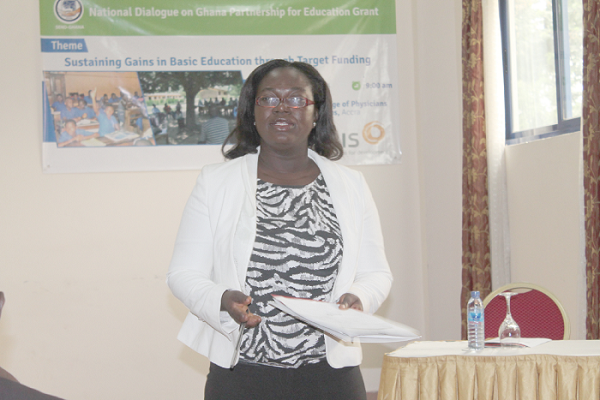
Education project makes gains in deprived districts
The government has been advised to seek more funding to sustain the gains made in basic education in deprived areas through the Ghana Partnership for Education Grant (GPEG) project.
Advertisement
The $75.5 million Global Fund on Education project was initially projected to last three years but was extended for 10 more months.
The project, which is expected to end by September 31, 2016, became effective on February 15, 2013 and is to benefit approximately 6,600 schools and 1.7 million pupils and students in eight out of the 10 regions.
Participants at a national dialogue on GPEG organised by SEND Ghana, during which the findings on a report on the project were shared, observed that the project had improved access to education in the 75 benefiting districts.
The participants, including policy makers, representatives of civil society organisations and the media, urged the government to look for alternative funding to sustain the gains made by GPEG.
They urged the government to provide learning opportunities for children in rural areas through the provision of infrastructure, including the provision of computer laboratories connected to the national grid.
The national dialogue was on the theme: “Sustaining gains in basic education through target funding”.
Views
Speaking at the dialogue, the Chairman of the Committee on Government Assurance of Parliament, Mr Emmanuel Bedzrah, who is the Member of Parliament for Ho, said: “The government must not depend all the time on donor partners.”

He said as the funding from the GPEG had been exhausted, “we must not just relax but the government can sustain the project through the Annual Budget Funding Amount (ABFA) from the oil revenue”.
The Director of Policy Advocacy Programme at SEND Ghana, Ms Clara Osei-Boateng, said although Ghana had exhausted its chances of benefiting from the grant, there were lessons which could be drawn from the project to improve basic education across the country.
She said SEND Ghana had, in addition to conducting a survey on the success of the project, organised dialogues for stakeholders at the district and regional levels where participants were made to make commitments to address some of the challenges identified with timelines and responsibilities.
Findings
Highlighting the findings of the report, a programme officer at SEND-Ghana, Ms Harriet Nuamah Agyemang, said it was found that the funding from GPEG had contributed positively to education at the district level.
Through the project, she said, it was found that school enrolment had increased, as some girls who were not in school benefited from scholarships at the lower primary level.
However, she said it was observed that girl’s enrolment at the upper primary and junior high school level was low.
Some of the schools which had been visited in the course of the survey were found to have computer laboratories which had been well stocked, but the students were unable to use them during their ICT lessons as a result of the unavailability of electricity in their communities.
She said it was also found that teachers in the beneficiary schools were motivated to go to school as a result of the availability of teaching and learning materials, as well as the regular unannounced visits by circuit supervisors.
Later in an interview, the Project Coordinator of the GPEG, Mr Kwame Agyapong, said the project was thought through and had been carefully executed and was meant to complement some of the ongoing projects in the educational sector.
Writer’s email: [email protected]



